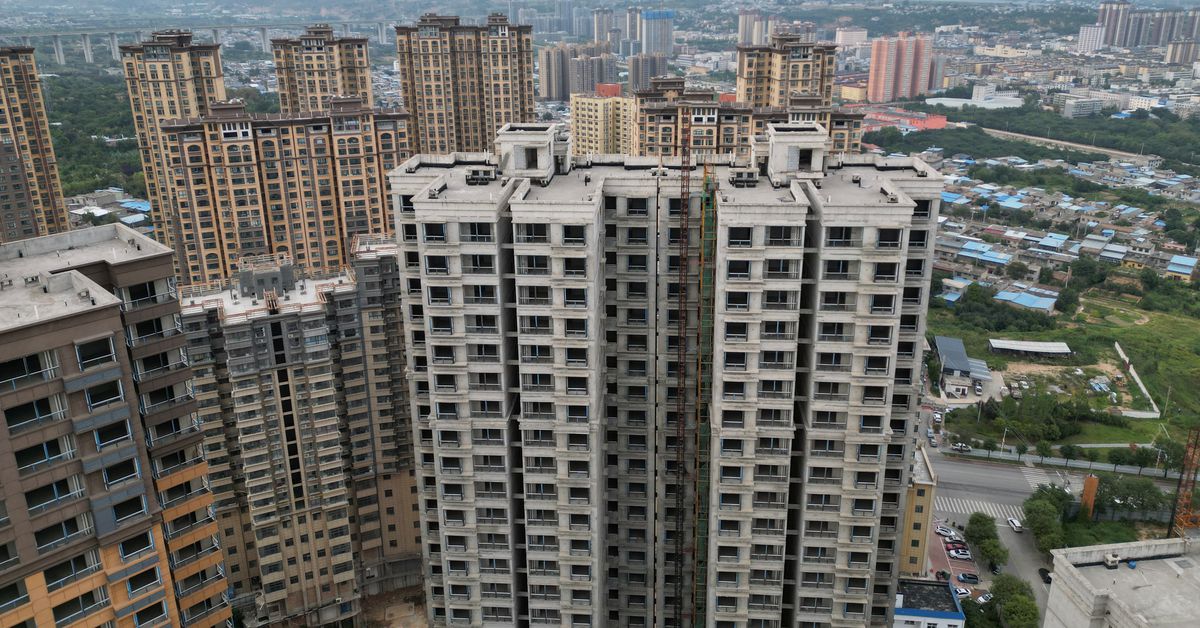Even China’s population of 1.4 billion would not be enough to fill all the empty apartments littered across the country, a former official said on Saturday, in a rare public critique of the country’s crisis-hit property market.
China’s property sector, once the pillar of the economy, has slumped since 2021 when real estate giant China Evergrande Group (3333.HK) defaulted on its debt obligations following a clampdown on new borrowing.
Big-name developers such as Country Garden Holdings (2007.HK) continue to teeter close to default even to this day, keeping home-buyer sentiment depressed.
As of the end of August, the combined floor area of unsold homes stood at 648 million square metres (7 billion square feet), the latest data from the National Bureau of Statistics (NBS) show.
That would be equal to 7.2 million homes, according to Reuters calculations, based on the average home size of 90 square metres.



Housing does not have the conditions to be a Free Market because any one piece of land has a single owner who has the monoply of deciding what’s done with it.
Sure, you can make as many houses you want … in places were nobody wants to live because there are no jobs there … but in practice the housing market is restricted by the ownership of land in those places were people do want to live in (have to live in, even, because the jobs are there), which means the supply of the most essential “raw material” for realestate - the actual land to build the housing in, situated were people need a place to live in - is heavilly restriced.
(In fact if you look at China’s problem, with all the “ghost cities” made by the now near bankrupt building companies, they’re exactly because they tried to work around that huge market barrier to entry by building cities in the middle of nowhere, were land was cheap and easilly available, on the expectation that both people and jobs would come there, and that didn’t work)
Free Markets can only happen in markets were new supply can easilly come online in response to things like price increases or lowered quality by established market players, and that’s markets for things like soap or teddy bears, not things were supply growth is heavilly restricted by land ownership or other similar high market barriers to entry.
Free Market Theory would only ever be applicable in markets with no or very low barriers to entry and only if market actors were rational, and Economists of the Behaviour Economics domain have proven that humans aren’t rational economic actors, not even close: that pseudo-economics bollocks you’re parroting is not only wholly unapplicable to the housing market (which has nowhere the low barriers to entry needed for there to de facto be freedom for market actors) but has even been disproven more than 2 decades ago (funilly enough by a guy who recently got a Nobel Prize in Economics, though for different work) when it was shown experimentally and in many different ways that homo economicus is not at all a good model for human economic behaviour.
This was my point. Thanks for expanding on it.